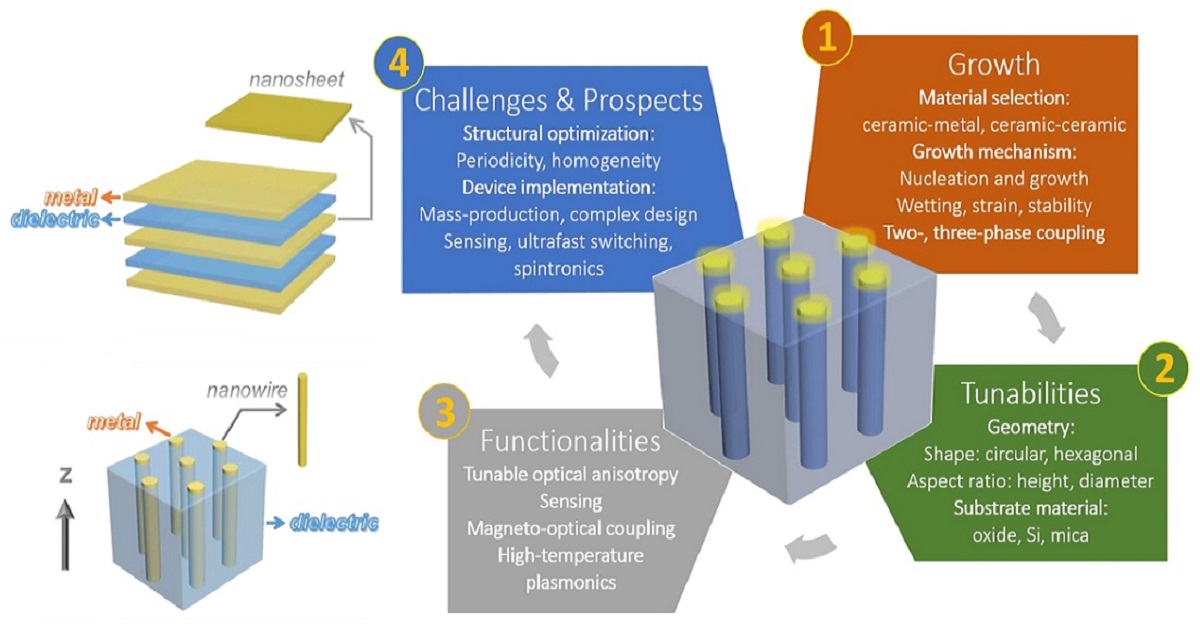- 3.2Impact Factor
- 6.4CiteScore
- 16 daysTime to First Decision
Recent Advances in Functional Metal Oxide/Metal Nanocomposites
This special issue belongs to the section “Advanced Nanomaterials and Nanotechnology“.
Special Issue Information
Dear Colleagues,
Functional oxides, including perovskite-type and transition metal compounds, possess a wide range of physical properties, including peizoelectricity, spin–orbit coupling, colossal magnetoresistance, and superconducting properties, that are of signficance to the development of next-generation microelectronics, optoelectronics, memrister and sensing devices. Using advanced fabrication techniques, functional oxides can be integrated with metals, forming nanocale composites such as superlattices, nanoparticles-in-matrix, and nanowire/nanopillar-in-matrix; this enables the generation of exotic multifunctionalities that are tunable, including localized surface plasmon resonance and magneto-optical coupling, and multiferroic properties that can be controlled by changing the density or aspect ratio of the nanopillars. This Special Issue welcomes papers that present recent advances in functional metal oxide/metal nanocomposites, including fabrication, the characterization of structure and properties, and the practical application of devices.
Prof. Dr. Xuejing Wang
Guest Editor
Manuscript Submission Information
Manuscripts should be submitted online at www.mdpi.com by registering and logging in to this website. Once you are registered, click here to go to the submission form. Manuscripts can be submitted until the deadline. All submissions that pass pre-check are peer-reviewed. Accepted papers will be published continuously in the journal (as soon as accepted) and will be listed together on the special issue website. Research articles, review articles as well as short communications are invited. For planned papers, a title and short abstract (about 250 words) can be sent to the Editorial Office for assessment.
Submitted manuscripts should not have been published previously, nor be under consideration for publication elsewhere (except conference proceedings papers). All manuscripts are thoroughly refereed through a single-blind peer-review process. A guide for authors and other relevant information for submission of manuscripts is available on the Instructions for Authors page. Materials is an international peer-reviewed open access semimonthly journal published by MDPI.
Please visit the Instructions for Authors page before submitting a manuscript. The Article Processing Charge (APC) for publication in this open access journal is 2600 CHF (Swiss Francs). Submitted papers should be well formatted and use good English. Authors may use MDPI's English editing service prior to publication or during author revisions.
Keywords
- thin films
- nanocomposites
- functional oxides
- multi-functionalities
- microelectronic devices

Benefits of Publishing in a Special Issue
- Ease of navigation: Grouping papers by topic helps scholars navigate broad scope journals more efficiently.
- Greater discoverability: Special Issues support the reach and impact of scientific research. Articles in Special Issues are more discoverable and cited more frequently.
- Expansion of research network: Special Issues facilitate connections among authors, fostering scientific collaborations.
- External promotion: Articles in Special Issues are often promoted through the journal's social media, increasing their visibility.
- Reprint: MDPI Books provides the opportunity to republish successful Special Issues in book format, both online and in print.


